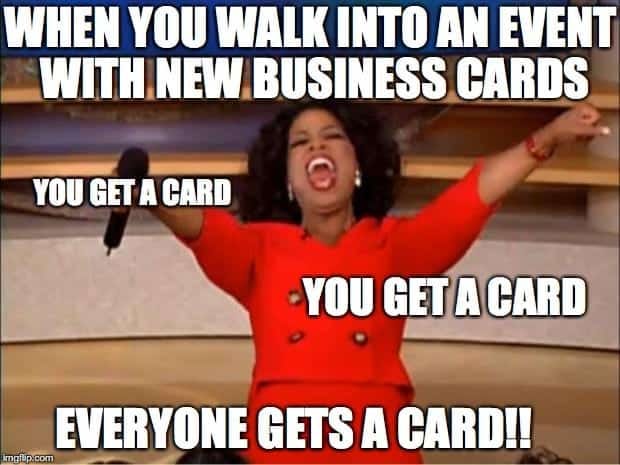Welcome to Mo’s Letter, a weekly publication about social media, business strategy and career development. Today’s post is about retrenchment.
I recently watched The Occupant on Netflix — a gripping film that I highly recommend. Watch it in the original Spanish if you can, with English subtitles. Here’s a trailer:
A family man loses his swanky apartment and is forced to take on menial jobs for survival. Things get dark real quick—seriously, watch the whole thing—but while I was watching the first part of the movie, I instinctively asked myself why he didn’t have a backup plan.
It dawned on me that most people are in the same position.
They invest years into their careers, betting that they will have their jobs forever. When they lose those jobs, things go downhill fast.
Today we’re going to look at what you can do before and after retrenchment.
Diversify your income
As you advance in your career, start thinking of how to supplement your income; no matter how sufficient you feel it is. A corporate job does not guarantee lifetime earnings, and there are too many factors outside your control to determine when or how it may end.
Many people live paycheck to paycheck – sustaining their lifestyles with a monthly salary they cannot afford to lose. With bills, debts and other familial obligations, a job loss very quickly becomes a nightmare.
Controlling your financial health helps guarantee your freedom: the freedom to move cities, to switch careers, or to take a break when needed.
Quick question: If you lost your job tomorrow, how many months could you survive based on your current expenses?
Would you be able to maintain the same lifestyle for at least six months as you searched for a new job? Are you earning any secondary income?
If the answer to any of those questions is “no”, you have some work to do. Let’s look at a few ways of reducing your risk.
Upskill yourself
No matter how talented you think you are, there’s always room for improvement. Whether you take short courses or sign up for training programs at your workplace, you have to keep supplementing your knowledge.
To know what to study, look at the job descriptions for positions above your level. If you’re currently a marketing officer, what would it take to become a marketing manager?
Sharpen your writing skills
Writing well is a skill that will always be in demand. The job market prizes the ability to structure thoughts coherently especially as you rise through the ranks.
As with any skill, writing well requires constant practice. You can sharpen your writing by blogging, enrolling for writing courses, or sharing your thoughts on social media.
Keyword: “constant.” You can’t write one article and call it a day.
Improve your speaking
It is criminal that public speaking isn’t a more emphasized subject at school. The number of adults who struggle with public speaking is too high given how important this skill is to career advancement and business success.
Again, practice makes perfect. You can Google helpful tips to get better at public speaking and practice those tips at your local Toastmasters club.
You should also take on a role that requires you to speak in front of people. Teaching a class in any subject will boost your confidence in front of crowds. Starting a podcast is an excellent way to practice your voice modulation and pronunciation. Even shooting YouTube videos forces you to improve your speaking game.
Learn marketing
Marketing skills are more in demand than ever. Knowing how to sell something profitably has never been more critical.
Lots of institutions offer short courses on marketing. It is a broad field, but the tenets are the same: generate Attention, capture Interest, stoke Desire and drive Action (AIDA).
Familiarize yourself with print, digital, broadcast, outdoor, and social media marketing. The latter is especially important to showcase what you have to offer.
Network relentlessly
Networking used to mean schmoozing at fancy events with over-fingered finger foods. You’d arrive with a stack of business cards and hand them out like candy.
In the age of social distancing, however, networking has moved onto social networks. Focus on showing value through your website, YouTube channel, email, and social media accounts. Share your thoughts, ask questions, offer advice, and give value before asking for it in return.
In short, do all the things you’d do at a fancy networking event, only this time on LinkedIn instead of at the Hilton.
Start a business
Starting a business requires the skills I’ve just described above, in addition to one or two other important ones.
For example, you need to understand how to package a product or service—as well as how to price your products effectively, target the right audience, and maintain positive cash flow.
You are already using some combination of these skills in your daily job. Why not apply them to something that will never fire you?
Just as you learned how to be a good employee or manager, you can learn how to be a successful business owner. Just start somewhere.
Cut costs
Life happens, and you need to prep accordingly.
While you still have a job, assess your current expenses and cut costs where possible. You don’t need that extra subscription or those fancy new clothes. You can also take a cheaper vacation or move into a more affordable apartment.
While you’re at it, set aside enough money for the basics. Ensure you can cover your rent or bond for at least three months while unemployed, and that school fees or medical aid premiums won’t be a problem.
After the termination
After you get retrenched and drop a goodbye GIF in the office WhatsApp group, steel yourself for a few months of reduced spending. Your lifestyle may take a hit, but you’re in survival mode now; act accordingly.
Spruce up your CV and contact your networks to see who is hiring. While awaiting feedback from interviews, start exploring ways to earn extra income. The below graphic will help you determine what might work for you:
You can take a small part of whatever it is you did before you got laid off and turn that into a service. If you were an architect, offer house plans. If you worked in PR, help businesses with their marketing. If you were a chef, offer custom meals delivered straight to people’s homes.
You only need a logo and a few posters from Canva to get started. It’s all free.
Recap
You’ll notice I’ve focused a lot on preventative measures. That’s because the best antidote to retrenchment is preparation. It doesn’t hurt as much if you have a Plan B.
Unemployment is a daunting prospect — but there are ways to prevent it, cushion its blow, and bounce back.
If you’re still employed, shore up your cash reserves and upskill yourself to increase your worth. If you’ve just been laid off, recognize this as an opportunity to recalibrate your future and invest in a brand new start.
But first, wine.
After you’ve drowned your sorrows, polish your CV and get to work. The key to employment is visibility. Some will say it’s connections, but connections come from people knowing you exist.
Put yourself out there like a swelling pimple. Make sure people can’t miss you.
Write, blog and showcase your skills, thoughts and portfolio. Keep yourself busy while handing in those applications.
Network like hell—connect with all the movers and shakers in your field and keep an eye out for opportunities where you can add value.
It’s far more effective to ask the CEO for a referral if they’ve already been reading your LinkedIn posts than it is to upload your CV to a random job site.
It’s temporary
You won’t be broke or unemployed forever. It’s easy to forget this when you’re financially drowning.
As you’re navigating unemployment, you may think things will never get back to normal. But unemployment is simply a period of “required change.”
The old normal didn’t work out, so a fresh start is needed.
Invest in new knowledge, network with old and new contacts, work on secondary income streams, and relentlessly put yourself out there. These are still the best ways of ensuring good financial, social and professional standing.
And remember: this too shall pass.
Need help with content creation and social media management? I help brands become rockstars on all major social media platforms. Get in touch.
I’m also on Twitter and LinkedIn.

Mohammed Shehu, Ph.D. writes on content and marketing for creators and brands. You can find him online @shehuphd everywhere.











